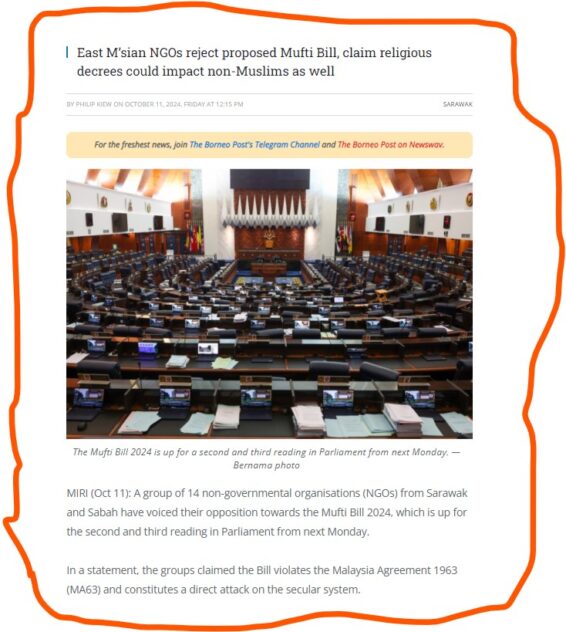PRIME Minister Datuk Seri Anwar Ibrahim has refrained from addressing several controversial and crucial issues since taking office.
While ministers and deputy ministers are responsible for commenting on their respective areas, the public expects Anwar to speak directly when it comes to national issues.
However, over the past two years, Anwar has often passed these issues to his ministers or civil servants, particularly on sensitive topics such as those pertaining to race, religion and royalty.
This reluctance to engage directly has puzzled many. It is speculated that Anwar may be doing so to defuse tension but this approach has left the public wanting.
One prominent example is the Mufti Bill (Federal Territories) 2024 which is up for its second and third readings in the Dewan Rakyat this week.
Instead of addressing the growing opposition himself, Anwar has delegated the matter to the Minister in the Prime Minister’s Department (Religious Affairs) Datuk Dr Mohd Na’im Mokhtar.
Unfortunately, while Mohd Na’im is a religious expert, he has not effectively communicated the urgency or the rationale behind the Bill.
As PM and politician, Anwar should be the one addressing the concerns raised by both Muslims and non-Muslims.
Opposition abounds
Prominent Islamic figures such as the Perlis Mufti Datuk Dr Mohd Asri Zainal Abidin (Dr MAZA) have strongly opposed the Bill by stating that it favours one particular interpretation of Islam while disregarding other views.
Even the Perlis Ruler has voiced concerns, calling for a more inclusive version of Islam. PAS president Tan Sri Hadi Awang has also rejected the bill, arguing that it lacks inclusivity.
Beyond these religious leaders, there are Muslim political analysts and thinkers who are apprehensive about the Bill’s doctrinaire nature.

Non-Muslims in Malaysia are equally concerned about the long-term implications, fearing that it signals a shift toward an increasingly Islamic direction for the country.
Activists and NGO leaders in Sabah and Sarawak are worried about the Bill’s potential impact on the rights and privileges of their states once it becomes the law. There is a growing belief that the bill undermines these states’ positions within the federation.
Similarly, non-Muslims in Peninsular Malaysia fear that the bill – if passed – could erode their constitutional rights.
Furthermore, the increased powers granted to the Mufti in the Federal Territories could make them immune to legal challenge, hence the role of Malay rulers as guardians of Islam may be diminished.
Despite these concerns, multi-racial political parties in Malaysia, especially those representing non-Muslims, have largely refrained from addressing the issue. This hesitance is partly due to fears of being accused of interfering in Muslim affairs.
Additionally, political parties like DAP appear to have grown comfortable with their current power and privileges, preferring not to “rock the boat”.
Unlike twice former premier Tun Dr Mahathir Mohamad, Anwar has been reluctant to take full responsibility for these sensitive matters.
It is possible that he is relying on legal measures to curb dissent related to race, religion and royalty if the situation escalates. – Oct 15, 2024
Main image credit: Anwar Ibrahim/Facebook









